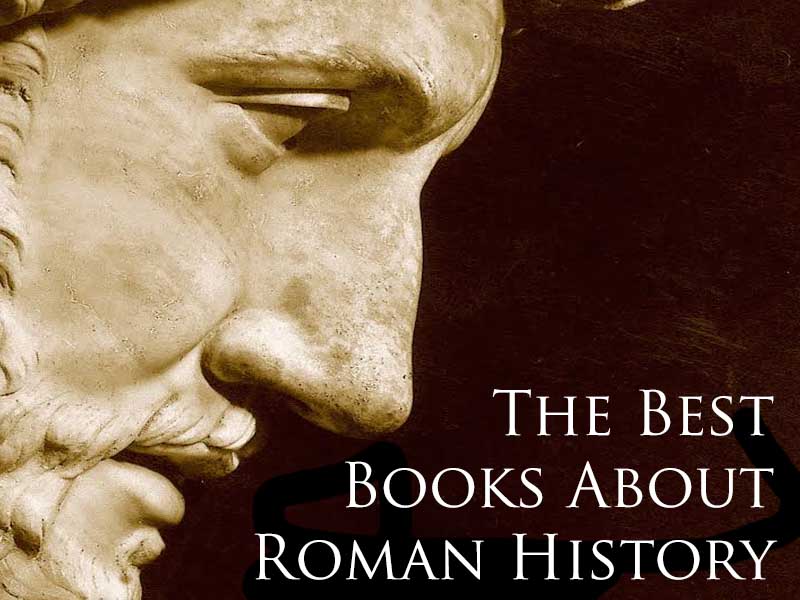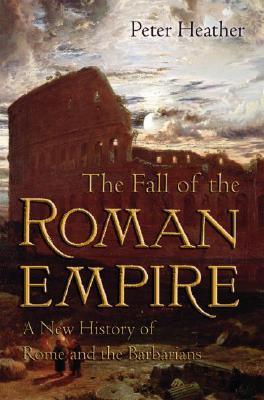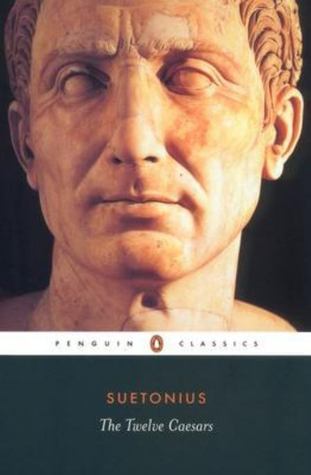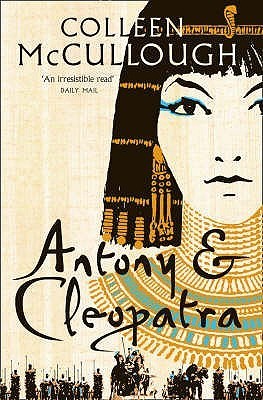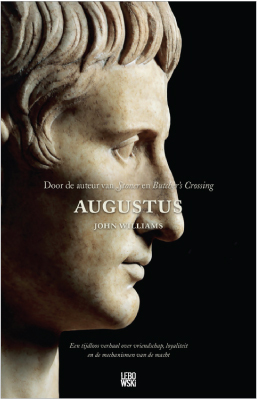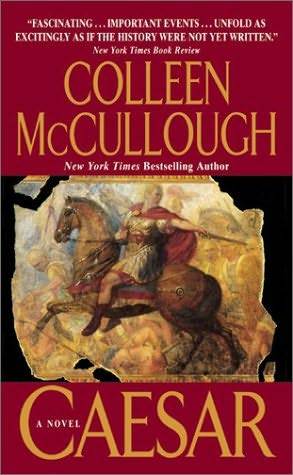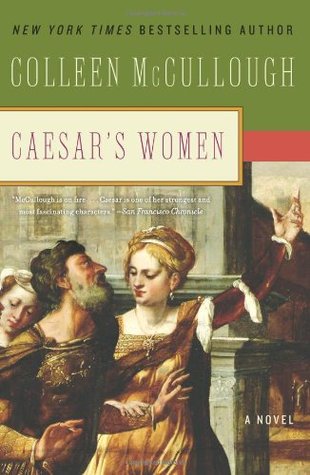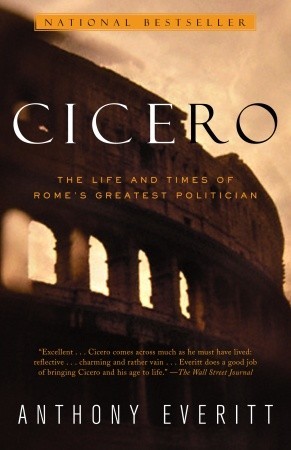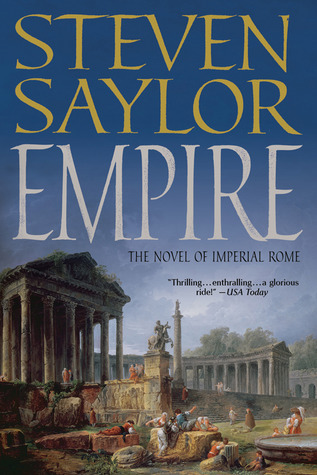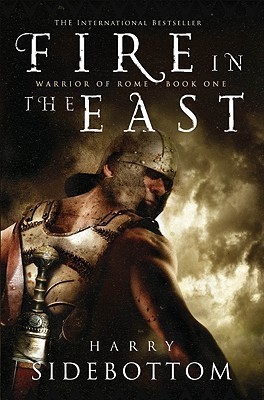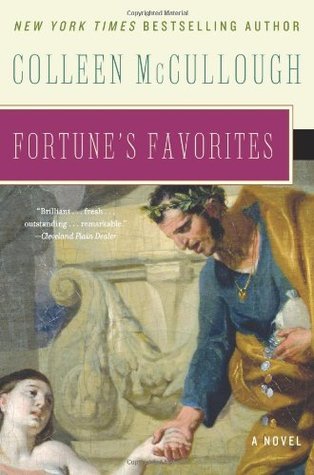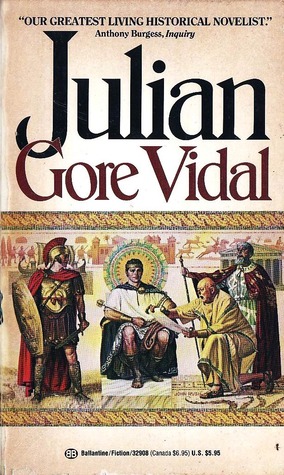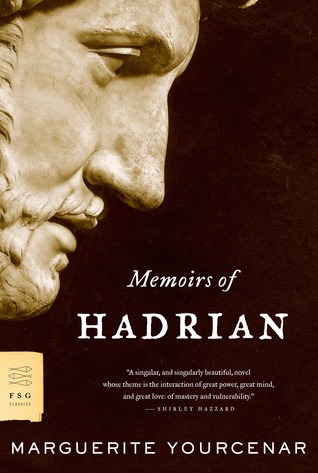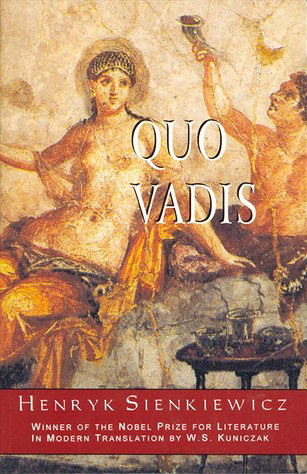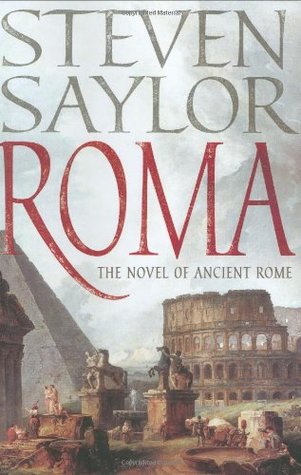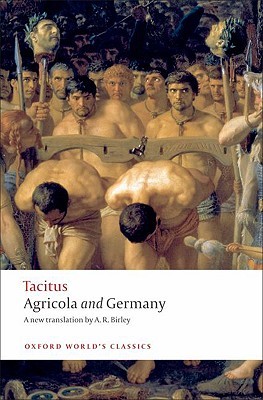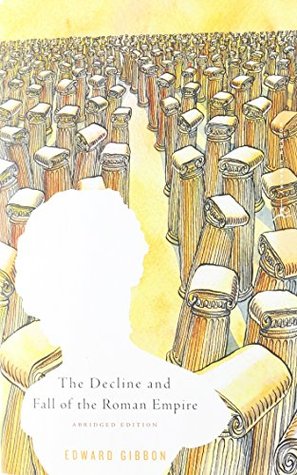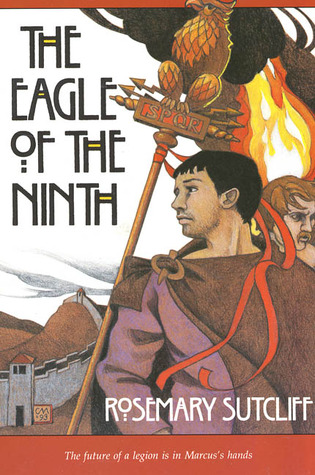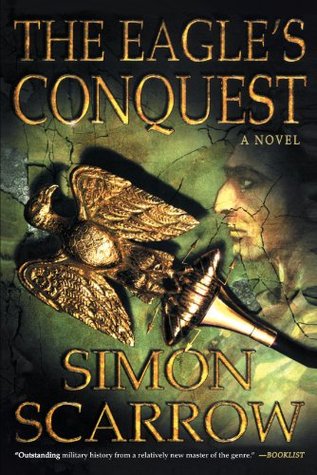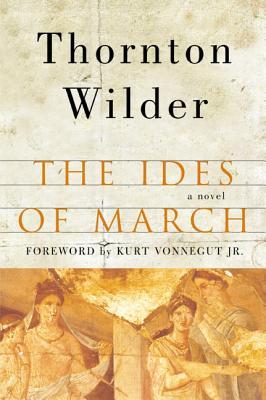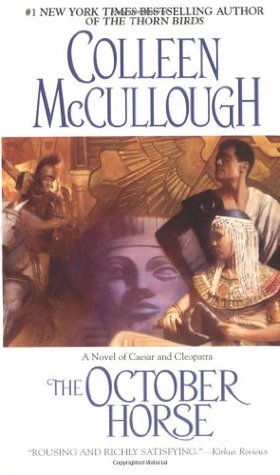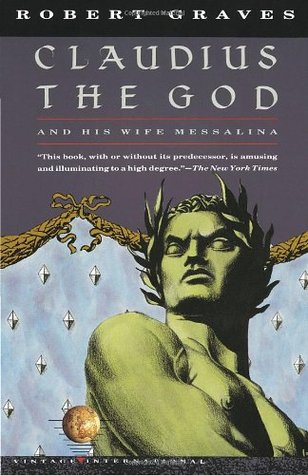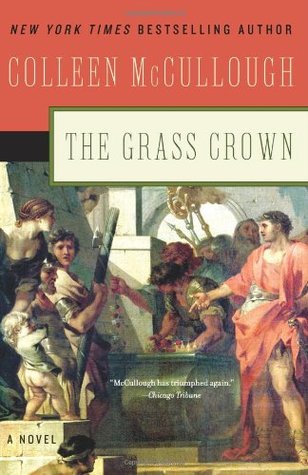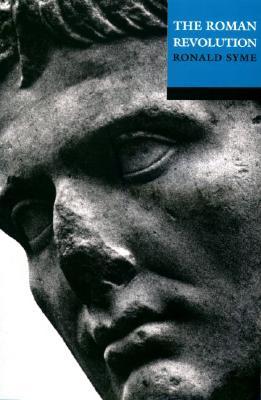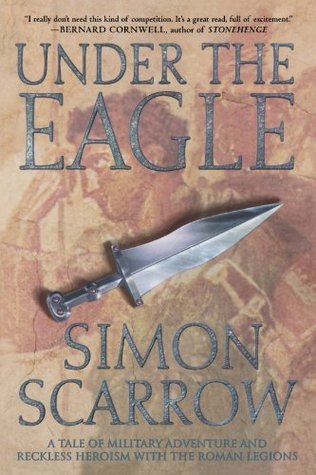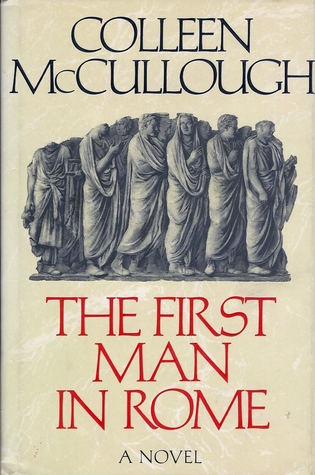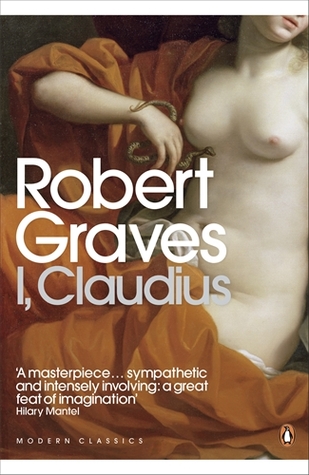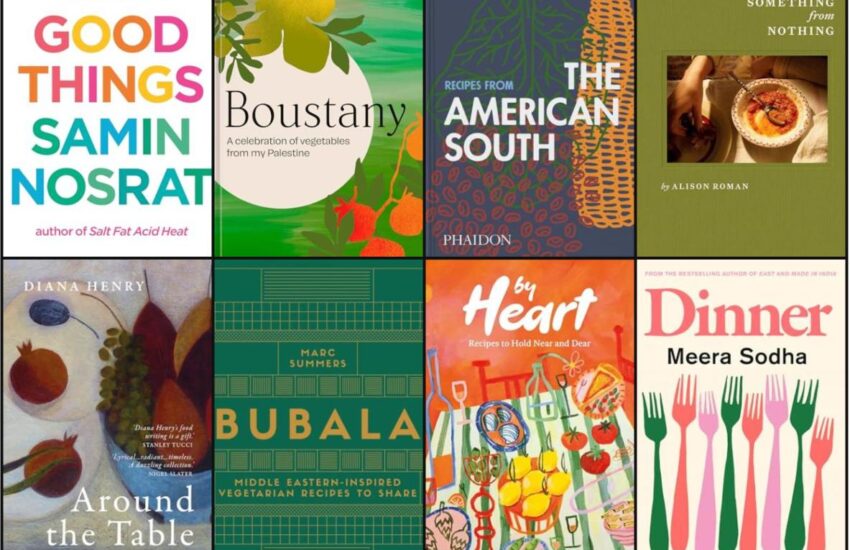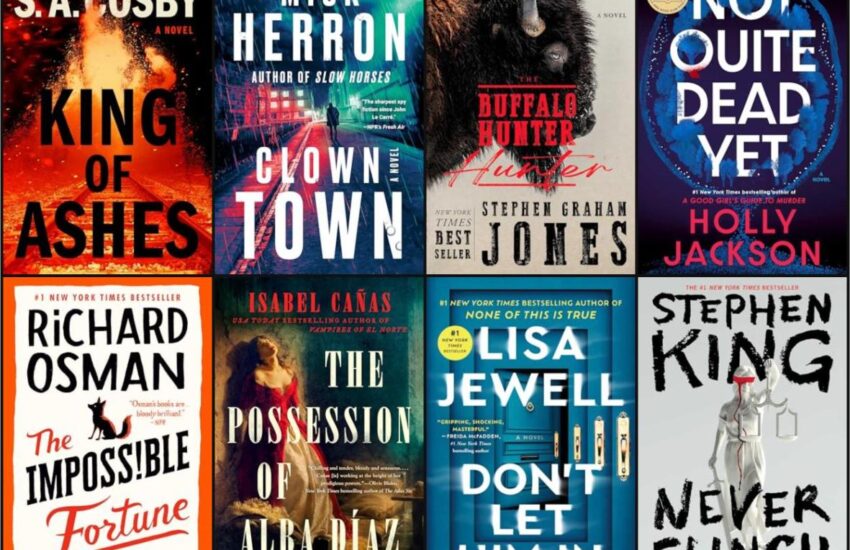The Best Roman History Books
“What are the best Roman History Books?” We looked at 243 different titles, aggregating and ranking the entries in an attempt to answer that very question!
Part 7 of our Italy week is Roman History! We can think of no better way to end our Italy week with a list of books about one of the largest and longest empires the world has ever known. Rome’s history is great and expansive, and hopefully this assortment of fiction and nonfiction titles can help shed some more much-deserved light on a subject the world should probably eye a little more carefully right about now.
The lists we made are:
Below you can find the top 27 books, all appearing on 3 or more lists, with images, summaries, and links. The remaining books, all appearing on 2 or fewer lists, as well as the articles we used are at the bottom of the page.
Happy Scrolling!
The Top Fiction And Nonfiction Books About Roman History
27 .) The Fall of the Roman Empire: A New History by Peter Heather
Lists It Appears On:
- About (Education)
- R4H
- Goodreads
“The death of the Roman Empire is one of the perennial mysteries of world history. Now, in this groundbreaking book, Peter Heather proposes a stunning new solution: Centuries of imperialism turned the neighbors Rome called barbarians into an enemy capable of dismantling an Empire that had dominated their lives for so long.
A leading authority on the late Roman Empire and on the barbarians, Heather relates the extraordinary story of how Europe’s barbarians, transformed by centuries of contact with Rome on every possible level, eventually pulled the empire apart. He shows first how the Huns overturned the existing strategic balance of power on Rome’s European frontiers, to force the Goths and others to seek refuge inside the Empire. This prompted two generations of struggle, during which new barbarian coalitions, formed in response to Roman hostility, brought the Roman west to its knees. The Goths first destroyed a Roman army at the battle of Hadrianople in 378, and went on to sack Rome in 410. The Vandals spread devastation in Gaul and Spain, before conquering North Africa, the breadbasket of the Western Empire, in 439. We then meet Attila the Hun, whose reign of terror swept from Constantinople to Paris, but whose death in 453 ironically precipitated a final desperate phase of Roman collapse, culminating in the Vandals’ defeat of the massive Byzantine Armada: the west’s last chance for survival.”
26 .) The Twelve Caesars by Suetonius
Lists It Appears On:
- Five Books
- Goodreads
- Useless Book Club
As private secretary to the Emperor Hadrian, the scholar Suetonius had access to the imperial archives and used them (along with eyewitness accounts) to produce one of the most colourful biographical works in history. The Twelve Caesars chronicles the public careers and private lives of the men who wielded absolute power over Rome, from the foundation of the empire under Julius Caesar and Augustus, to the decline into depravity and civil war under Nero and the recovery that came with his successors. A masterpiece of observation, anecdote and detailed physical description, The Twelve Caesars presents us with a gallery of vividly drawn—and all too human—individuals.
25 .) Antony and Cleopatra by Colleen McCullough
Lists It Appears On:
- Historical Novels
- Library Thing
- Goodreads
Caesar is dead, and Rome is, again, divided. Lepidus has retreated to Africa, while Antony rules the opulent East, and Octavian claims the West, the heart of Rome, as his domain. Though this tense truce holds civil war at bay, Rome seems ripe for an emperor — a true Julian heir to lay claim to Caesar’s legacy. With the bearing of a hero, and the riches of the East at his disposal, Antony seems poised to take the prize. Like a true warrior-king, he is a seasoned general whose lust for power burns alongside a passion for women, feasts, and Chian wine. His rival, Octavian, seems a less convincing candidate: the slight, golden-haired boy is as controlled as Antony is indulgent and as cool-headed and clear-eyed as Antony is impulsive. Indeed, the two are well matched only in ambition.
24 .) Augustus by John Edward Williams
Lists It Appears On:
- Goodreads
- Library Thing
- Historical Novels
In Augustus, his third great novel, John Williams took on an entirely new challenge, a historical narrative set in classical Rome, exploring the life of the founder of the Roman Empire. To tell the story, Williams turned to the epistolary novel, a genre that was new to him, transforming and transcending it just as he did the western in Butcher’s Crossing and the campus novel in Stoner. Augustus is the final triumph of a writer who has come to be recognized around the world as an American master.
23 .) Caesar by Colleen McCullough
Lists It Appears On:
- Historical Novels
- Library Thing
- Goodreads
“Colleen McCullough’s track record in publishing reads like Caesar’s triumphs in battlewide-ranging in scope, masterful in style, unequaled in achievement. From her almost twelve-million-copy-selling Thorn Birds through her four novels in the Masters of Rome series, McCullough has never faltered.
Here she turns her attentions to Caesar’s conquest of Gaul and to his momentous decision at the river Rubicon to claim his place in the government of Rome. At a time that preceded the technology of any firearm, when military acumen, strategy, and leadership were all, it was Caesar’s genius that prevailed, over and over. What Caesar accomplished in Gaul is the stuff of historical epic, of military academies, and of this novel. He was utterly awesome. Yet history forgets that Caesar was also a man, not immune to the human condition. He succeeded brilliantly, but he also suffered great personal grief and disappointment. It is the full portrait of Caesar, a man destined to inspire an empire, that Colleen McCullough paints here–faithfully, magnificently, and in radiant light.”
22 .) Caesar’s Women by Colleen McCullough
Lists It Appears On:
- Historical Novels
- Library Thing
- Goodreads
His victories were legend—in battle and bedchamber alike. Love was a political weapon he wielded cunningly and ruthlessly in his private war against enemies in the forum. Genius, general, patrician, Gaius Julius Caesar was history. His wives bought him influence. He sacrificed his beloved daughter on the altar of ambition. He burned for the cold-hearted mistress he could never dare trust. Caesar’s women all knew—and feared—his power. He adored them, used them, destroyed them on his irresistible rise to prominence. And one of them would seal his fate.
21 .) Cicero: The Life and Times of Rome’s Greatest Politician by Anthony Everitt
Lists It Appears On:
- The Week
- Goodreads
- Library Thing
“He squared off against Caesar and was friends with young Brutus. He advised the legendary Pompey on his somewhat botched transition from military hero to politician. He lambasted Mark Antony and was master of the smear campaign, as feared for his wit as he was for exposing his opponents’ sexual peccadilloes. Brilliant, voluble, cranky, a genius of political manipulation but also a true patriot and idealist, Cicero was Rome’s most feared politician, one of the greatest lawyers and statesmen of all times. Machiavelli, Queen Elizabeth, John Adams and Winston Churchill all studied his example. No man has loomed larger in the political history of mankind.
In this dynamic and engaging biography, Anthony Everitt plunges us into the fascinating, scandal-ridden world of ancient Rome in its most glorious heyday. Accessible to us through his legendary speeches but also through an unrivaled collection of unguarded letters to his close friend Atticus, Cicero comes to life in these pages as a witty and cunning political operator.”
20 .) Empire: the Novel of Imperial Rome (Roma, #2) by Steven Saylor
Lists It Appears On:
- Historical Novels
- Library Thing
- Goodreads
“Continuing the saga begun in his New York Times bestselling novel Roma, Steven Saylor charts the destinies of the aristocratic Pinarius family, from the reign of Augustus to height of Rome’s empire. The Pinarii, generation after generation, are witness to greatest empire in the ancient world and of the emperors that ruled it―from the machinations of Tiberius and the madness of Caligula, to the decadence of Nero and the golden age of Trajan and Hadrian and more.
Empire is filled with the dramatic, defining moments of the age, including the Great Fire, the persecution of the Christians, and the astounding opening games of the Colosseum. But at the novel’s heart are the choices and temptations faced by each generation of the Pinarii.
Steven Saylor once again brings the ancient world to vivid life in a novel that tells the story of a city and a people that has endured in the world’s imagination like no other.”
19 .) Fire in the East by Harry Sidebottom
Lists It Appears On:
- Historical Novels
- Library Thing
- Useless Book Club
A.D. 255: The Roman Imperium is stretched to the breaking point, its authority and might challenged throughout the territories and along every border. One man is sent to marshal the defenses of a lonely city and to shore up the crumbling walls of a once indomitable symbol of Roman power, a man whose very name means war, a man called Ballista. So unfolds an epic drama—a story of empire, heroes, treachery, courage, and most of all, of brutal, bloody warfare.
18 .) Fortune’s Favorites by Colleen McCullough
Lists It Appears On:
- Historical Novels
- Library Thing
- Goodreads
“With incomparable storytelling skill, New York Times bestselling author Colleen McCullough brings Rome alive in all her majesty—and illuminates the world of those favored by the gods at birth.
In a time of cataclysmic upheaval, a bold new generation of Romans vied for greatness amid the disintegrating remnants of their beloved Republic. They were the chosen…and the cursed—blessed with wealth and privilege yet burdened by the dictates of destiny in a savage struggle for power that would leave countless numbers crushed and destroyed. But there was one who would tower above them all—a brilliant and beautiful boy whose ambition was unparalleled, whose love was legend, and whose glory was Rome’s: a boy they would one day call “”Caesar.”””
17 .) Julian by Gore Vidal
Lists It Appears On:
- Richard Blake
- Goodreads
- Library Thing
Julian the Apostate, nephew of Constantine the Great, was one of the brightest yet briefest lights in the history of the Roman Empire. A military genius on the level of Julius Caesar and Alexander the Great, a graceful and persuasive essayist, and a philosopher devoted to worshipping the gods of Hellenism, he became embroiled in a fierce intellectual war with Christianity that provoked his murder at the age of thirty-two, only four years into his brilliantly humane and compassionate reign. A marvelously imaginative and insightful novel of classical antiquity, Julian captures the religious and political ferment of a desperate age and restores with blazing wit and vigor the legacy of an impassioned ruler.
16 .) Memoirs of Hadrian by Marguerite Yourcenar
Lists It Appears On:
- Historical Novels
- Goodreads
- Library Thing
Both an exploration of character and a reflection on the meaning of history, Memoirs of Hadrian has received international acclaim since its first publication in France in 1951. In it, Marguerite Yourcenar reimagines the Emperor Hadrian’s arduous boyhood, his triumphs and reversals, and finally, as emperor, his gradual reordering of a war-torn world, writing with the imaginative insight of a great writer of the twentieth century while crafting a prose style as elegant and precise as those of the Latin stylists of Hadrian’s own era.
15 .) Quo Vadis by Henryk Sienkiewicz
Lists It Appears On:
- Historical Novels
- Goodreads
- Library Thing
Quo Vadis tells a powerful tale of love and redemption in a time of ultimate danger — for Christians and Romans alike. “Quo vadis Domine” is Latin for “Where are you going, Lord?” and alludes to the apocryphal Acts of Peter, in which Peter flees Rome but on his way meets Jesus and asks him why he is going to Rome. Jesus says, “I am going back to be crucified again”, which makes Peter go back to Rome and accept martyrdom. It is a phrase of great meaning to Christians. The author of Quo Vadis, Henryk Sienkiewicz, was awarded the Nobel Prize for literature in 1905, and the enduring popularity of Quo Vadis contributed greatly to the award. Set in Rome in the time of Nero, Quo Vadis tells the story of Roman tribune Marcus, who falls in love with a beautiful Christian girl, Ligia.
14 .) Roma by Steven Saylor
Lists It Appears On:
- Historical Novels
- Library Thing
- Goodreads
“Spanning a thousand years, and following the shifting fortunes of two families though the ages, this is the epic saga of Rome, the city and its people.
Weaving history, legend, and new archaeological discoveries into a spellbinding narrative, critically acclaimed novelist Steven Saylor gives new life to the drama of the city’s first thousand years ― from the founding of the city by the ill-fated twins Romulus and Remus, through Rome’s astonishing ascent to become the capitol of the most powerful empire in history. Roma recounts the tragedy of the hero-traitor Coriolanus, the capture of the city by the Gauls, the invasion of Hannibal, the bitter political struggles of the patricians and plebeians, and the ultimate death of Rome’s republic with the triumph, and assassination, of Julius Caesar.”
13 .) Rubicon: The Last Years of the Roman Republic by Tom Holland
Lists It Appears On:
- The Week
- Useless Book Club
- Goodreads
A vivid historical account of the social world of Rome as it moved from republic to empire. In 49 B.C., the seven hundred fifth year since the founding of Rome, Julius Caesar crossed a small border river called the Rubicon and plunged Rome into cataclysmic civil war. Tom Holland’s enthralling account tells the story of Caesar’s generation, witness to the twilight of the Republic and its bloody transformation into an empire. From Cicero, Spartacus, and Brutus, to Cleopatra, Virgil, and Augustus, here are some of the most legendary figures in history brought thrillingly to life. Combining verve and freshness with scrupulous scholarship, Rubicon is not only an engrossing history of this pivotal era but a uniquely resonant portrait of a great civilization in all its extremes of self-sacrifice and rivalry, decadence and catastrophe, intrigue, war, and world-shaking ambition.
12 .) The Agricola and The Germania by Tacitus
Lists It Appears On:
- Library Thing
- R4H
- Goodreads
The Agricola is both a portrait of Julius Agricola—the most famous governor of Roman Britain and Tacitus’ well-loved and respected father-in-law—and the first detailed account of Britain that has come down to us. It offers fascinating descriptions of the geography, climate and peoples of the country, and a succinct account of the early stages of the Roman occupation, nearly fatally undermined by Boudicca’s revolt in AD 61 but consolidated by campaigns that took Agricola as far as Anglesey and northern Scotland. The warlike German tribes are the focus of Tacitus’ attention in the Germania, which, like the Agricola, often compares the behaviour of “barbarian” peoples favourably with the decadence and corruption of Imperial Rome.
11 .) The Decline and Fall of the Roman Empire by Edward Gibbon
Lists It Appears On:
- Jet Punk
- Five Books
- Goodreads
Gripping, powerfully intelligent, and wonderfully entertaining, Gibbon’s classic account of Rome ranks as one of the literary masterpieces of its age. Attacked for its enlightened views on politics, sexuality, and religion, the first volume was nonetheless found on every table and received widespread acclaim for its elegant prose. Famously skeptical about Christianity, unexpectedly sympathetic to the barbarian invaders and the Byzantine Empire, constantly aware of how political leaders often achieve the exact opposite of what they intend, Gibbon captured both the broad pattern of events and the significant revealing detail. This abridged edition compresses thirteen turbulent centuries into a single epic narrative, and features a foreword, introduction, and extended appreciation by Hugh Trevor-Roper, an esteemed professor of history at Oxford University.
10 .) The Eagle of the Ninth by Rosemary Sutcliff
Lists It Appears On:
- Goodreads
- The Guardian
- Library Thing
9 .) The Eagle’s Conquest by Simon Scarrow
Lists It Appears On:
- Historical Novels
- Library Thing
- Goodreads
When Centurion Macro and his young subordinate, Optio Cato arrive on the shores of Britain to take part in the Emperor Claudius’ invasion in AD 43, Macro knows the desperately outnumbered Roman army will be facing one of the toughest campaigns ever. Meanwhile, a sinister organization is secretly betraying the brave men of the legions. When assassination rumors coincide with the Emperor’s arrival, the soldiers realize they are up against a force more ruthless than the Britons, and that time is running out if they are to prevent Claudius’s glorious victory from turning to disaster.
8 .) The Ides of March by Thornton Wilder
Lists It Appears On:
- Historical Novels
- Goodreads
- Library Thing
“Drawing on such unique sources as Thornton Wilder’s unpublished letters, journals, and selections from the extensive annotations Wilder made years later in the margins of the book, Tappan Wilder’s Afterword adds a special dimension to the reissue of this internationally acclaimed novel.
The Ides of March, first published in 1948, is a brilliant epistolary novel set in Julius Caesar’s Rome. Thornton Wilder called it “”a fantasia on certain events and persons of the last days of the Roman republic.”” Through vividly imagined letters and documents, Wilder brings to life a dramatic period of world history and one of history’s most magnetic, elusive personalities.
In this inventive narrative, the Caesar of history becomes Caesar the human being. Wilder also resurrects the controversial figures surrounding Caesar — Cleopatra, Catullus, Cicero, and others. All Rome comes crowding through these pages — the Rome of villas and slums, beautiful women and brawling youths, spies and assassins.”
7 .) The October Horse by Colleen McCullough
Lists It Appears On:
- Historical Novels
- Library Thing
- Goodreads
“Grand in scope and vivid in detail, McCullough’s gripping narrative thrusts readers headlong into the complex and fascinating world of Rome in the tumultuous last days of the Republic. At the height of his power, Gaius Julius Caesar becomes embroiled in a civil war in Egypt, where he finds himself enraptured by Cleopatra, the nation’s golden-eyed queen. To do his duty as a Roman, however, he must forsake his love and return to the capital to rule.
Though Caesar’s grip on power seems unshakable, the political landscape is treacherous — the returning hero has no obvious successor, and his legacy seems to be the prize for any man with the courage and cunning to fell Rome’s laurelled leader. Caesar’s jealous enemies masquerade as friends and scheme to oust the autocrat from power and restore true republican government to Rome. But as the plot races to its dramatic conclusion, it becomes clear that with the stakes this high, no alliance is sacred and no motives are pure.”
6 .) Claudius the God by Robert Graves
Lists It Appears On:
- Historical Novels
- Library Thing
- Goodreads
- Jet Punk
Robert Graves begins anew the tumultuous life of the Roman who became emporer in spite of himself. Captures the vitality, splendor, and decadence of the Roman world at the point of its decline.
5 .) The Grass Crown by Colleen McCullough
Lists It Appears On:
- Historical Novels
- Jet Punk
- Library Thing
- Goodreads
Throughout the Western world, great kingdoms have fallen and despots lay crushed beneath the heels of Rome’s advancing legions. But now internal rebellion threatens the stability of the mighty Republic. An aging, ailing Gaius Marius, heralded conqueror of Germany and Numidia, longs for that which was prophesied many years before: an unprecedented seventh consulship of Rome. It is a prize to be won only through treachery and with blood, pitting Marius against a new generation of assassins, power-seekers, and Senate intriguers—and setting him at odds with the ambitious, tormented Lucius Cornelius Sulla, once Marius’s most trusted right-hand man, now his most dangerous rival.
4 .) The Roman Revolution by Ronald Syme
Lists It Appears On:
- About (Education)
- Five Books
- The Week
- Library Thing
The Roman Revolution is a profound and unconventional treatment of a great theme – the fall of the Republic and the decline of freedom in Rome between 60 BC and AD 14, and the rise to power of the greatest of the Roman Emperors, Augustus. The transformation of state and society, the violent transference of power and property, and the establishment of Augustus’ rule are presented in an unconventional narrative, which quotes from ancient evidence, refers seldomly to modern authorities, and states controversial opinions quite openly. The result is a book which is both fresh and compelling.
3 .) Under the Eagle by Simon Scarrow
Lists It Appears On:
- Historical Novels
- Library Thing
- Goodreads
- Useless Book Club
It is the year 42 AD, and Centurion Macro, battle-scarred and fearless, is in the heart of Germany with the Second Legion, the toughest in the Roman army. Cato, a new recruit and the newly appointed second-in-command to Macro, will have more to prove than most. In a bloody skirmish with local tribes, Cato gets his first chance to prove that he’s more than a callow, privileged youth. As their next campaign takes them to a land of unparalleled barbarity – Britain – a special mission unfolds, thrusting Cato and Macro headlong into a conspiracy that threatens to topple the Emperor himself.
2 .) The First Man in Rome by Colleen McCullough
Lists It Appears On:
- Historical Novels
- Jet Punk
- Library Thing
- Rick Steves
- Goodreads
When the world cowered before the legions of Rome, two extraordinary men dreamed of personal glory: the military genius and wealthy rural “upstart” Marius, and Sulla, penniless and debauched but of aristocratic birth. Men of exceptional vision, courage, cunning, and ruthless ambition, separately they faced the insurmountable opposition of powerful, vindictive foes. Yet allied they could answer the treachery of rivals, lovers, enemy generals, and senatorial vipers with intricate and merciless machinations of their own—to achieve in the end a bloody and splendid foretold destiny . . . and win the most coveted honor the Republic could bestow.
1 .) I, Claudius by Robert Graves
Lists It Appears On:
- Historical Novels
- Jet Punk
- Richard Blake
- The Guardian
- Useless Book Club
- Library Thing
- Rick Steves
- Goodreads
- The Culture Trip
Considered an idiot because of his physical infirmities, Claudius survived the intrigues and poisonings of the reigns of Augustus, Tiberius, and the Mad Caligula to become emperor in 41 A.D. A masterpiece.
The Remaining Best History Of Rome Books
| # | Book | Author | Lists |
| (Appear On 2 Lists Each) | |||
| 28 | Ancient Inventions | Peter James and Nick Thorpe | The Guardian |
| The Guardian 2 | |||
| 29 | Ancient Rome: The Rise and Fall of an Empire | Simon Baker | R4H |
| Rick Steves | |||
| 30 | Antony and Cleopatra | William Shakespeare | Goodreads |
| Library Thing | |||
| 31 | Caesar Life of a Colossus | Adrian Goldsworthy | About (Education) |
| Goodreads | |||
| 32 | Captain of Rome | John Stack | Historical Novels |
| Library Thing | |||
| 33 | Carthage | Ross Leckie | Historical Novels |
| Library Thing | |||
| 34 | Count Belisarius | Robert Graves | Jet Punk |
| Goodreads | |||
| 35 | Daily Life in Ancient Rome | Jérôme Carcopino | The Guardian |
| The Guardian 2 | |||
| 36 | Dark North | Gillian Bradshaw | Historical Novels |
| Library Thing | |||
| 37 | Eagle in the Snow | Wallace Breem | Goodreads |
| Library Thing | |||
| 38 | Family Favourites | Alfred Duggan | Historical Novels |
| Library Thing | |||
| 39 | Hannibal | Ross Leckie | Historical Novels |
| Library Thing | |||
| 40 | Island of Ghosts | Gillian Bradshaw | Goodreads |
| Library Thing | |||
| 41 | Josephus and the Emperor | Lion Feuchtwanger | Historical Novels |
| Library Thing | |||
| 42 | Julius Caesar | William Shakespeare | Goodreads |
| Library Thing | |||
| 43 | King of Kings | Harry Sidebottom | Historical Novels |
| Library Thing | |||
| 44 | Lion of the Sun | Harry Sidebottom | Historical Novels |
| Library Thing | |||
| 45 | Master of Rome | John Stack | Historical Novels |
| Library Thing | |||
| 46 | Pagans and Christians | Robin Lane Fox | Five Books |
| Library Thing | |||
| 47 | Pompeii | Robert Harris | Goodreads |
| Rick Steves | |||
| 48 | Pride of Carthage | David Anthony Durham | Historical Novels |
| Library Thing | |||
| 49 | Render unto Caesar | Gillian Bradshaw | Historical Novels |
| Library Thing | |||
| 50 | Roman Blood | Steven Saylor | Richard Blake |
| Goodreads | |||
| 51 | Roman Britain | Keith Branigan | The Guardian |
| R4H | |||
| 52 | Roman Wall | Bryher | Historical Novels |
| Library Thing | |||
| 53 | Salammbo | Gustave Flaubert | Historical Novels |
| Library Thing | |||
| 54 | Scipio Africanus | Ross Leckie | Historical Novels |
| Library Thing | |||
| 55 | Ship of Rome | John Stack | Historical Novels |
| Library Thing | |||
| 56 | SPQR | Mary Beard | Useless Book Club |
| Goodreads | |||
| 57 | The Aeneid | Virgil | Goodreads |
| Library Thing | |||
| 58 | The Caspian Gates | Harry Sidebottom | Historical Novels |
| Library Thing | |||
| 59 | The Coin of Carthage | Bryher | Historical Novels |
| Library Thing | |||
| 60 | The Conquest of Gaul | Julius Caesar | R4H |
| Goodreads | |||
| 61 | The Eagle and the Wolves | Simon Scarrow | Historical Novels |
| Library Thing | |||
| 62 | The Eagle’s Prey | Simon Scarrow | Historical Novels |
| Library Thing | |||
| 63 | The Gladiators | Arthur Koestler | Historical Novels |
| Library Thing | |||
| 64 | The Histories | Tacitus | Goodreads |
| Library Thing | |||
| 65 | The Jew of Rome | Lion Feuchtwanger | Historical Novels |
| Library Thing | |||
| 66 | The Legate’s Daughter | Wallace Breem | Historical Novels |
| Library Thing | |||
| 67 | The Love Artist | Jane Alison | Library Thing |
| Historical Novels | |||
| 68 | The Only Good Roman | Christine Elaine Black | Goodreads |
| Goodreads | |||
| 69 | The Oxford History of the Classical World | John Boardman | Library Thing |
| Library Thing | |||
| 70 | The Seasons of Rome | Paul Hofmann | Rick Steves |
| Bear Cave | |||
| 71 | Three’s Company | Alfred Duggan | Historical Novels |
| Library Thing | |||
| 72 | When the Eagle Hunts | Simon Scarrow | Historical Novels |
| Library Thing | |||
| 73 | Winter Quarters | Alfred Duggan | Historical Novels |
| Library Thing | |||
| (Appear On 1 List Each) | |||
| 74 | The Fall of the Roman Republic: Six Lives | Plutarch | Goodreads |
| 75 | The Twelve Caesars | Michael Grant | Goodreads |
| 76 | A Conspiracy | John Hersey | Library Thing |
| 77 | A Day in Old Rome: A Picture of Roman Life | William Stearns Davis | Library Thing |
| 78 | A Day in the Life of Ancient Rome | Alberto Angela | Rick Steves |
| 79 | A God Strolling in the Cool of the Evening | Mário de Carvalho | Library Thing |
| 80 | A History of the Roman World 753 to 146 B.C. | H.H. Scullard | About (Education) |
| 81 | A Literary Companion to Rome | John Varriano | Rick Steves |
| 82 | A Mist of Prophecies (Roma Sub Rosa, #9) | Steven Saylor | Goodreads |
| 83 | A Murder on the Appian Way (Roma Sub Rosa, #5) | Steven Saylor | Goodreads |
| 84 | A Soldier of the Great War | Mark Helprin | Rick Steves |
| 85 | A Topographical Dictionary of Rome | Samuel Ball Platner and Thomas Ashby | The Guardian 2 |
| 86 | A Voice in the Wind (Mark of the Lion, #1) | Francine Rivers | Goodreads |
| 87 | Absolute Monarchs | John Julius Norwich | Rick Steves |
| 88 | Africanus: el hijo del Cónsul (Publio Cornelio Escipión, #1) | Santiago Posteguillo | Goodreads |
| 89 | Alberto Moravia | The Woman of Rome | The Culture Trip |
| 90 | Always I Am Caesar | About (Education) | |
| 91 | Amara Lakhous | Clash of Civilisations Over an Elevator in Piazza Vittorio | The Culture Trip |
| 92 | An Imperial Possession: Britain in the Roman Empire, 54 BC – AD 409 | David Mattingly | Library Thing |
| 93 | Ancient Rome on Five Denarii A Day | Useless Book Club | |
| 94 | Angels & Demons | Dan Brown | Rick Steves |
| 95 | Annals and Histories (Tacitus) | Useless Book Club | |
| 96 | Arms of Nemesis (Roma Sub Rosa, #2) | Steven Saylor | Goodreads |
| 97 | Augustine of Hippo: A Biography | Peter Brown | Library Thing |
| 98 | Augustus: The Life of Rome’s First Emperor | Anthony Everitt | Goodreads |
| 99 | Ben-Hur: A Tale of the Christ | Lew Wallace | Goodreads |
| 100 | Carlo Emilio Gadda | The Culture Trip | |
| 101 | Catilina’s Riddle (Roma Sub Rosa, #3) | Steven Saylor | Goodreads |
| 102 | Child of the Sun | Lance Horner and Kyle Onstott | Richard Blake |
| 103 | Children of the Wolf | Alfred Duggan | Library Thing |
| 104 | Cicero: Select Letters | The Week | |
| 105 | City of the Soul : A Walk in Rome | William Murray | Bear Cave |
| 106 | City: A Story of Roman Planning and Construction | David Macaulay | Rick Steves |
| 107 | Clash of Civilizations Over an Elevator in Piazza Vittorio | Amara Lakhous | Rick Steves |
| 108 | Cleopatra: A Life | Stacy Schiff | Goodreads |
| 109 | Cleopatra’s Daughter | Michelle Moran | Goodreads |
| 110 | Conquerors and Slaves | K. Hopkins | The Times Literary Supplement |
| 111 | Conspiracy | John Hersey | Historical Novels |
| 112 | Cookery and Dining in Imperial Rome | Apicius | R4H |
| 113 | Cooking Apicius: Roman Recipes for Today | Sally Grainger | R4H |
| 114 | Coriolanus | William Shakespeare | Goodreads |
| 115 | Corruption and the Decline of Rome | Ramsay MacMullen | Library Thing |
| 116 | Courtesans and Fishcakes | J. Davidson | The Times Literary Supplement |
| 117 | Daughters of Rome (The Empress of Rome, #2) | Kate Quinn | Goodreads |
| 118 | Der jüdische Krieg | Lion Feuchtwanger | Library Thing |
| 119 | Dictator (Cicero Trilogy #3) | Useless Book Club | |
| 120 | Doctors and Diseases in the Roman Empire | Ralph Jackson | The Guardian 2 |
| 121 | Eat, Pray, Love | Elizabeth Gilbert | Rick Steves |
| 122 | Empress of the Seven Hills (The Empress of Rome, #3) | Kate Quinn | Goodreads |
| 123 | Epigrams | Martial | Library Thing |
| 124 | Et tu Brute | G Woolf | The Times Literary Supplement |
| 125 | Exploring Roman Britain | Andrew McCloy | R4H |
| 126 | First Man in Rome (Masters of Rome #1) | Useless Book Club | |
| 127 | Founding Fathers | Alfred Duggan | Historical Novels |
| 128 | From the Gracchi to Nero | H.H. Scullard | About (Education) |
| 129 | Gabriele D’Annunzio | Pleasure | The Culture Trip |
| 130 | Gardens of the Roman World | Patrick Bowe | The Guardian 2 |
| 131 | Germania | Tacitus | Goodreads |
| 132 | Handbook to Life in Ancient Rome | Lesley Adkins and Roy A Adkins | The Guardian |
| 133 | Helena | Evelyn Waugh | Library Thing |
| 134 | Hellenism in Late Antiquity | Glen W. Bowersock | Library Thing |
| 135 | History of Rome | Michael Grant | Goodreads |
| 136 | History of the Twelve Caesars | Suetonius | Library Thing |
| 137 | How Rome Fell: Death of a Superpower | Adrian Goldsworthy | Goodreads |
| 138 | How to Win an Election | Quintus Tullius Cicero (translated | The Guardian 2 |
| 139 | Imperium: A Novel of Ancient Rome (Cicero, #1) | Robert Harris | Goodreads |
| 140 | Italian Journey | Johann Wolfgang von Goethe | Rick Steves |
| 141 | Josephus | Lion Feuchtwanger: | Historical Novels |
| 142 | Las legiones malditas (Publio Cornelio Escipión, #2) | Santiago Posteguillo | Goodreads |
| 143 | Last Seen in Massilia (Roma Sub Rosa, #8) | Steven Saylor | Goodreads |
| 144 | Lavinia | Ursula K. Le Guin | Goodreads |
| 145 | Lest Darkness Fall | L. Sprague de Camp | Library Thing |
| 146 | Letters from a Stoic | Seneca | Goodreads |
| 147 | Life and Death in Pompeii and Herculaneum | Paul Roberts | The Guardian 2 |
| 148 | Lives of the Noble Romans | Plutarch | Goodreads |
| 149 | Lucrezia Borgia | Maria Bellonci | Rick Steves |
| 150 | Lustrum (Cicero, #2) | Robert Harris | Goodreads |
| 151 | Makers of Rome: Nine Lives | Plutarch | Goodreads |
| 152 | Maria Bellonci | Lucrezia Borgia | The Culture Trip |
| 153 | Medicus (Gaius Petreius Ruso, #1) | Ruth Downie | Goodreads |
| 154 | Meditations: A New Translation | Marcus Aurelius | Goodreads |
| 155 | Michelangelo and the Pope’s Ceiling | Ross King | Rick Steves |
| 156 | Mistress of Rome (The Empress of Rome, #1) | Kate Quinn | Goodreads |
| 157 | Muriel Spark | The Public Image | The Culture Trip |
| 158 | My Brilliant Friend | Elena Ferrante | Rick Steves |
| 159 | Nathaniel Hawthorne | The Marble Faun | The Culture Trip |
| 160 | Once Upon the Tiber | Rose Williams | About (Education) |
| 161 | Orgy-Planner Wanted: Odd Jobs and Curious Careers in the Ancient World | Vicki Leon | The Guardian 2 |
| 162 | Party Politics in the Age of Caesar | Lily Ross Taylor | About (Education) |
| 163 | Plutarch’s Lives | Plutarco | Library Thing |
| 164 | Polybius | F. W. Walbank | Library Thing |
| 165 | Roman Battle Tactics 109BC – AD313 (Elite) | Ross Cowan | R4H |
| 166 | Roman Britain: A New History | Guy de la Bédoyère | R4H |
| 167 | Roman Britain: Outpost of the Empire | H.H. Scullard | R4H |
| 168 | Roman Social Relations, 50 B.C. to A.D. 284 | Ramsay MacMullen | Library Thing |
| 169 | Roman Warfare | Adrian Goldsworthy | About (Education) |
| 170 | Rome Against Caratacus – The Roman Conquest of Britain | Graham Webster | R4H |
| 171 | Rome and a Villa | Eleanor Clark | Rick Steves |
| 172 | Rome and Her Empire | Barry Cunliffe | The Guardian |
| 173 | Rome Tales | The Culture Trip | |
| 174 | Rome: A cultural and literary companion | Jonathan Boardman | Bear Cave |
| 175 | Rome: An Oxford Archaeological Guide | Amanda Claridge | The Guardian |
| 176 | Rome: The Eagle of the Twelfth | Manda Scott | Library Thing |
| 177 | Rome’s Greatest Defeat: Massacre in the Teutoburg Forest | Adrian Murdoch | Goodreads |
| 178 | Rome’s Saxon Shore: Coastal Defenses of Roman Britain AD 250-500 (Fortress) | Nic Fields | R4H |
| 179 | Rubicon (Roma Sub Rosa, #7) | Steven Saylor | Goodreads |
| 180 | Saints & Sinners | Eamon Duffy | Rick Steves |
| 181 | Scipio Africanus: Greater Than Napoleon | B. H. Liddell Hart | Library Thing |
| 182 | See Delphi and Die (Marcus Didius Falco, #17) | Lindsey Davis | Goodreads |
| 183 | Selected Political Speeches | Marcus Tullius Cicero | Goodreads |
| 184 | Selected Works | Marcus Tullius Cicero | Goodreads |
| 185 | Shadows in Bronze (Marcus Didius Falco, #2) | Lindsey Davis | Goodreads |
| 186 | Shopping in Ancient Rome | Claire Holleran | The Guardian 2 |
| 187 | Social Conflicts in the Roman Republic | P.A. Brunt’s | The Times Literary Supplement |
| 188 | Tennessee Williams | The Roman Spring of Mrs. Stone | The Culture Trip |
| 189 | Terra Incognita (Gaius Petreius Ruso, #2) | Ruth Downie | Goodreads |
| 190 | That Awful Mess on the Via Merulana | Carlo Emilio Gadda | Rick Steves |
| 191 | The Agony and the Ecstasy | Irving Stone | Rick Steves |
| 192 | The Ancient Romans | Chester G. Starr | Library Thing |
| 193 | The Annals | Tacito | Library Thing |
| 194 | The Annals of Imperial Rome | Tacitus | Goodreads |
| 195 | The Beginnings of Rome | Tim Cornell | About (Education) |
| 196 | The Civil War | Julius Caesar | The Week |
| 197 | The Classical Cookbook | Andrew Dalby and Sally Grainger | R4H |
| 198 | The Colosseum | Keith Hopkins and Mary Beard | The Guardian |
| 199 | The Complete Roman Army | Adrian Goldsworthy | R4H |
| 200 | The Course of Honor | Lindsey Davis | Goodreads |
| 201 | The Day of the Barbarians | Alessandro Barbero | About (Education) |
| 202 | The Death of Caesar | Barry Strauss | The Week |
| 203 | The Death of Kings (Emperor, #2) | Conn Iggulden | Goodreads |
| 204 | The Decameron | Giovanni Boccaccio | Rick Steves |
| 205 | The Eagle and the Raven | Pauline Gedge | Library Thing |
| 206 | The Early History of Rome: (The History of Rome, #1-5) | Livy | Goodreads |
| 207 | The Essential Writings | Flavius Josephus | Goodreads |
| 208 | The Field of Swords (Emperor, #3) | Conn Iggulden | Goodreads |
| 209 | The Gallic War and Other Writings | Gaius Iulius Caesar | Goodreads |
| 210 | The Gates of Rome (Emperor, #1) | Conn Iggulden | Goodreads |
| 211 | The Gods of War (Emperor, #4) | Conn Iggulden | Goodreads |
| 212 | The Grand Strategy of the Roman Empire: From the First Century A.D. to the Third | Edward N. Luttwak | Library Thing |
| 213 | The Greeks: a portrait of self and others | P. Cartledge | The Times Literary Supplement |
| 214 | The History of Rome, Books XXI-XXX: The War With Hannibal | Livy | Goodreads |
| 215 | The House of the Vestals (Roma Sub Rosa, #6) | Steven Saylor | Goodreads |
| 216 | The Iron Hand of Mars (Marcus Didius Falco, #4) | Lindsey Davis | Goodreads |
| 217 | The Judgment of Caesar (Roma Sub Rosa, #10) | Steven Saylor | Goodreads |
| 218 | The Last Days of Pompeii | Edward Bulwer-Lytton | Goodreads |
| 219 | The Last Generation of the Roman | Erich Gruen | About (Education) |
| 220 | The Letters of the Younger Pliny | Pliny the Younger | Goodreads |
| 221 | The Light Bearer | Donna Gillespie | Goodreads |
| 222 | The Lost World of Pompeii | Colin Amery and Brian Curran Jr | The Guardian |
| 223 | The Mysterious Fayum Portraits: Faces from Ancient Egypt | Euphrosyne Doxiades | The Guardian 2 |
| 224 | The Pope’s Elephant | Silvio A. Bedini | Rick Steves |
| 225 | The Robe | Lloyd C. Douglas | Goodreads |
| 226 | The Roman | Mika Waltari | Goodreads |
| 227 | The Roman Empire: Second Edition | Colin Wells | Library Thing |
| 228 | The Roman History: The Reign of Augustus (Classics) | Cassius Dio | R4H |
| 229 | The Roman Spring of Ms. Stone | Tennessee Williams | Rick Steves |
| 230 | The Roman Triumph | Mary Beard | Five Books |
| 231 | The Romans Who Shaped Britain | Sam Moorhead | Library Thing |
| 232 | The Ruin of the Roman Empire: A New History | James J. O’Donnell | Library Thing |
| 233 | The Satyricon | Petronius Arbiter | Goodreads |
| 234 | The Secret History | Procopius | Library Thing |
| 235 | The Secrets of Rome: Love and Death in the Eternal City | Corrado Augias | Rick Steves |
| 236 | The Silver Pigs (Marcus Didius Falco, #1) | Lindsey Davis | Goodreads |
| 237 | The Sword of Pleasure | Peter Green | Richard Blake |
| 238 | The Triumph of Caesar (Roma Sub Rosa, #12) | Steven Saylor | Goodreads |
| 239 | The Venus Throw (Roma Sub Rosa, #4) | Steven Saylor | Goodreads |
| 240 | The Woman of Rome | Alberto Moravia | Rick Steves |
| 241 | Titus Andronicus | William Shakespeare | Goodreads |
| 242 | Venus in Copper (Marcus Didius Falco, #3) | Lindsey Davis | Goodreads |
| 243 | When in Rome | Robert Hutchinson | Rick Steves |
The Top Roman History Book Lists
| Source | Article |
| About (Education) | Selected Books on Roman History |
| Bear Cave | Books on Italy |
| Five Books | Tom Holland recommends the best books on Ancient Rome |
| Goodreads | Best Books About Ancient Rome |
| Historical Novels | The 50 Best Historical Novels for a Survey of Ancient Roman History |
| Jet Punk | Best Books about Roman History |
| Library Thing | Best Roman Empire Books |
| R4H | Our best selling Roman History books with reviews |
| Richard Blake | Five Recommended Roman Historical Novels (2015) |
| Rick Steves | Rome: Recommended Books and Movies |
| The Culture Trip | 10 Books that Will Make You Fall in Love with Rome |
| The Guardian | Lindsey Davis’s top 10 Roman books |
| The Guardian 2 | Lindsey Davis’s top 10 books about ancient Rome |
| The Times Literary Supplement | Some good books on ancient history |
| The Week | Robert Harris recommends 6 books about the final years of the Roman republic |
| Useless Book Club | Best Ancient Rome Books (fiction and nonfiction) |
